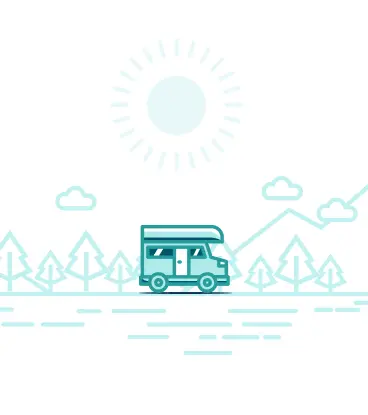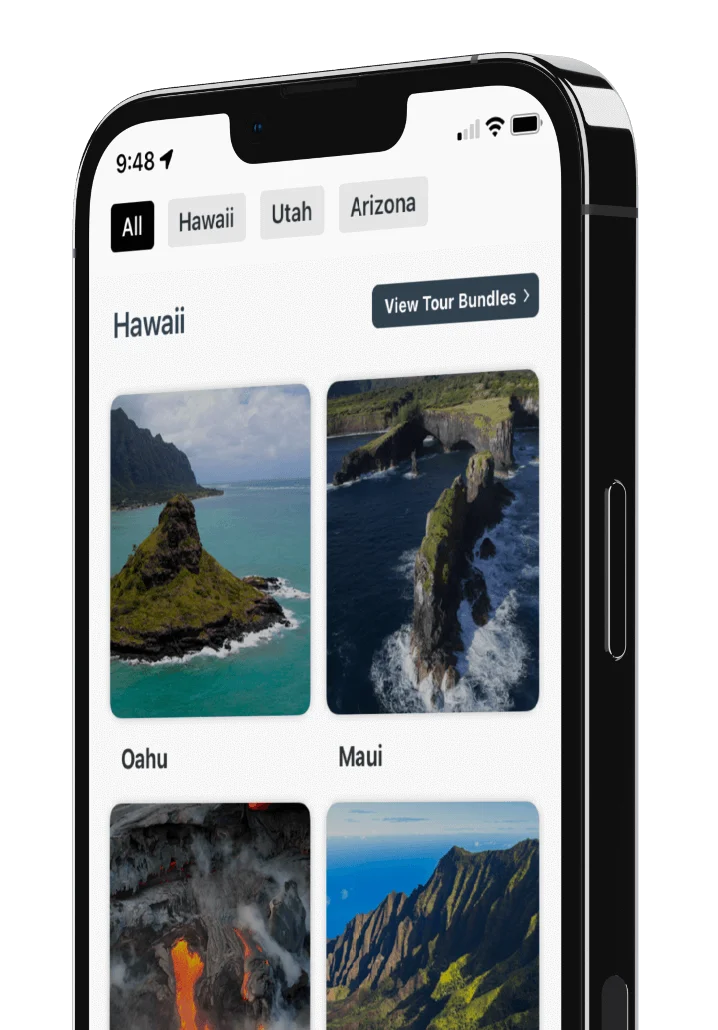
Know Before You Go, Mount Rainier National Park

Nestled majestically in the Pacific Northwest, Mount Rainier stands as an unparalleled testament to the awe-inspiring beauty of nature. With its snow-capped peak towering at 14,410 feet, this iconic volcano dominates the horizon, attracting hikers and those who appreciate the great outdoors.
Beyond its stunning vistas, Mount Rainier National Park offers an unrivaled playground for adventurers. It boasts pristine alpine meadows, cascading waterfalls, ancient forests, and a wealth of diverse wildlife.
Whether you’re seeking exhilarating rugged trails, serene moments of reflection while immersing yourself in magical landscapes, or simply want some peace to connect with nature in its purest form, a visit to Mount Rainier promises you an unforgettable journey into the heart of the wilderness.
Start Planning!
 Shutterstock Image
Shutterstock Image
You’re about to go on an epic adventure in Mount Rainier National Park! Here’s what you need to know before you go:
- No decisions have been made if timed entry reservations will be required for the 2025 summer season.
- Currently, timed entry reservations are NOT required to enter any part of Mount Rainier National Park (last updated 3/4/25). All visitors are still required to pay the park entrance fee or use an interagency or park pass.
- Arrive early - in peak season (July-September) there are long waits to enter the park and parking in the park is limited.
- Mount Rainier is open 24 hours a day, all year round.
- It costs $30 per car or $55 for an annual park pass to visit.
- Keep your receipt! You’ll leave the park to visit different sections of the park and you’ll need to show it again.
- The wildflower season is July-September
- Expect rain! This is the Pacific Northwest after all.
- Fill up your tank before you head to the park - there are no gas stations in Mount Rainier.
- There’s limited data and wifi in the park - download the tour before you go!
- There’s minimal food or water in (and even around the park). Be sure to pack supplies for your visit. Scroll down for food options in and around the park!
- The tour has 4 starting points: Elbe, Enumclaw, Packwood, and Lava Falls.
- The tour takes about 1-3 days to complete, depending on the stops you make and the hikes you complete.
Budget and Hours of Operation
Budget
- It costs $30 per car to enter the park.
- $30-$44 per ticket, Crystal Mountain Scenic Gondola.
Hours of Operation
- The park is open 24 hours a day, 365 days a year.
- The park’s visitor centers and facilities have varied hours of operation throughout the year. Visit the NPS website here to learn more.
- The Crystal Mountain Scenic Gondola is only available in the winter. Check back for hours of operation here.
Packing Essentials for Your Visit to Mount Rainier
 Shutterstock Image
Shutterstock Image
Layers
The weather can change rapidly in the Pacific Northwest, and gets colder and windier the higher you go. The PNW is also known for rain. And lots of it. So even if a day starts off warm and sunny, you want to be prepared for everything, especially along a hiking trail.
Rain Gear
Bring a waterproof (not water-resistant) jacket and consider waterproof pants, too.
Sturdy Footwear
Make sure your hiking boots are broken in so that you know they’ll be comfortable. High hiking boots are strongly recommended to keep your ankles safe on craggy, rough terrain. And good traction is a must.
Water
And plenty of it. Some of the trails are very, very long and if you’re planning on going the distance, you need to stay hydrated. Also, if you’re traveling to Rainier in any month other than July and August, most everything inside the park is closed down, except for the General Store in Longmire. So you need to carry lots of water into the park with you, because you may not find any once you’re there.
Trail Maps
The Longmire Wilderness Information Center and The Jackson Visitor Center in Paradise are the only two that are open year-round, so if you’re visiting the park any time outside of July and August, be sure and pick up any hiking maps that you’ll need at those two places, in case everything else is closed when you get there. Not every trail is marked well, so a compass is also a good idea.
Sun protection
Sunscreen, sunglasses, and a wide-brimmed hat are essential during sunny days.
First Aid Kit
Pack one. Whether it's a blister, a cut, or a headache, you need to be prepared. Some of these park trails can be deserted and without wifi in the park, you need to be able to handle an emergency.
Emergency Kit
In addition to your first aid kit, carry an emergency whistle, fire-starting material, a headlamp, and a water purifier. In case the unexpected happens, you need to keep yourself safe.
Backpack
Have a good, comfy daypack to carry around your essentials.
Food/Snack
Unless you’re at the park in July or August, there aren’t many places to buy food. And hiking works up an appetite. You need to keep your strength up so that your body cooperates and stays strong on long hikes.
Phone Charger
A phone charger for your car (so that you can rely on the Shaka Guide App for directions and information) and a portable phone charger for long hikes (so you can take lots of photos along the trails)!
Best Time to Visit
What is the best time to visit Mount Rainier, and can you visit the park all year long? Well, the Shaka Guide tour of Mount Rainier National Park could be taken between the months of May and October, when most of the roads are open.
But… if you want a guarantee of seeing the best parts of the park and being able to drive the entire park along the Shaka Guide route, then go when the last of the snow has been cleared and all of the roads are open.
When’s that? The absolute best time to visit is during the months of July, August, and September! Otherwise, there could still be too much snow and ice at the higher elevations (especially in Sunrise) right up until July!
And sections of highways 410 and 123 on the east side of the park close down entirely at the first sign of ice and don’t even get plowed again until late spring!
Where to Stay Near Mount Rainier?
 Shutterstock Image
Shutterstock Image
Lodges by Mount Rainier National Park
Mount Rainier National Park contains two lodges run by the park, both accessible from the Nisqually entrance on the southwest side of the park.
One is the National Park Inn in the Longmire section of the park. This area is accessible from the only entrance to the park that stays open all year round: The Nisqually entrance. The National Park Inn is open year-round, along with its attached General Store.
But fair warning – if you want to book a night or two in this lodge, or the other lodge inside the park — The Paradise Inn — in the summertime, you better make your reservations months and months in advance. That’s because both of these inns book fast and sell out during the summer months!
On the other hand, if you wanted to visit again in the wintertime to cozy up surrounded by snow, with a hot meal, perhaps even to celebrate Thanksgiving, Christmas, or New Year’s (and maybe even do some snowshoeing in the only accessible and safe area of the entire park in wintertime) the National Park Inn in the Longmire section of the park is the place for you.
Lodges outside the park
Outside the park, there are lots of local log cabins and private lodges that are also available with advanced reservations, so plan ahead. But keep this in mind: This park is big. So if you’re planning to spend a day in the Paradise area of the park, stay overnight in that area.
But if you’re planning to drive to the other side of the park (Sunrise, Ohanapecosh, etc.) and spend the day there, you’re better off booking your second hotel night on that side of the park.
Because the last thing you want to do is have to drive two or three hours from one side of the park to the other in the dark…with cliff drop-offs thousands and thousands of feet with no roadside barriers!
To summarize, it takes hours to drive from one side of the park to the other. So you want to plan your lodging based on where you’ll be when nighttime hits! That may mean different lodges on different nights!
Paradise Inn Lodge
Another note on the historic Paradise Inn lodge: It’s at a very high elevation inside the park. That means that each time you want to visit your room, you’ve got to snake your way up the mountain.
Again, you probably don’t want to be doing this in the dark. Also, that inn is only open in the summertime during peak season (not all year long, like the National Park Inn in Longmire, which is on solid – flat – ground near the park entrance at Nisqually.)
Where to Find Food, Restaurants, and Gas in Mount Rainier
If you’re visiting the park in July and August, everything’s open, both inside the park and in the communities closest to the park entrances. But any other time of year, consider stocking up in Tacoma, Buckhead, Enumclaw, or Packwood (depending on which direction you’re coming from).
Reminders
Note: If you’re planning to start the tour at the Sunrise section of Mount Rainier National Park and are coming from Enumclaw, here’s your fair warning that is the last town before…nothingness.
Although there is a very, very small town called Greenwater closer to Sunrise, you can’t even count on their general store or gas station being open. Except for one roadside tavern and a cafe in the back of the Wapiti clothing store (which is actually great but not open 24/7), you will have to drive almost 40 minutes back to Enumclaw if you show up at Sunrise without gas and supplies!
The same goes for Ashford, the small town closest to the Nisqually Entrance. If you’re planning to start the tour on the southwest side of the park at the main entrance (Nisqually), just know that Ashford is a small town with very few restaurants, shops, and gas stations open off-season or 24/7.
Safety Tips for Hiking and Exploring
 Shutterstock Image
Shutterstock Image
Plan Ahead
Read our Mount Rainier Hiking Guide to know the details of the trails you want to hike.
Stay On Trails
This protects the fragile ecosystems, including the dirt and plant life surrounding the trails. It also keeps you from getting lost!
Hike with a buddy or group
Whenever possible, don’t hike alone. In a park with such high elevations, steep cliffs, and drop-offs, you’ll be safer if someone is with you. But if you are going to hike alone, make sure someone knows which hike you’re taking and what time you started out.
Stay Hydrated
Again, drink water regularly to avoid dehydration at higher elevations.
Altitude Awareness
It’s important to realize that you may experience altitude sickness at higher elevations, including feeling breathless. Take it slow and give your body time to acclimate if needed.
Slow down or stop and let your heart rate slow before continuing. Or, turn around if you start to feel lightheaded, dizzy, faint, nauseous, tired, or disoriented.
Wildlife Safety Precautions
- Observe from a distance. Do not approach wildlife, especially predators.
- Do not feed animals. Not only is it illegal, it’s dangerous for both you and the wildlife.
- Store food properly. Use bear canisters or hang food items in bear-proof bags in designated areas.
- Make noise. Although your instinct might be to tiptoe and hide if you see wildlife, the opposite is true. You should announce your presence by yelling or clapping to avoid surprising wildlife.
Leave No Trace
- Plan ahead and prepare. Know the park regulations, choose appropriate equipment, and be aware of how you can be sure and leave nature exactly the way you found it.
- Travel and camp on durable surfaces. Stick to established trails and campsites to minimize soil erosion.
- Dispose of waste properly. Pack out whatever you brought in. Don’t leave any trash or litter around, including food scraps.
- Leave What You Find. Preserve the park’s natural and cultural features. Don’t pick plants or disturb historical sites.
- Minimize campfire impact. Use a camp stove for cooking. Fires are prohibited in most areas.
- Be considerate of other visitors. Keep noise levels down, yield the trail, and maintain a friendly attitude!
We hope that we’ve given you all the information you need to make the most of your day. Your vacation is extremely important to us so if you have any questions feel free to reach out at aloha@shakaguide.com.
For more information and to check out the tour, be sure to check out the accompanying itinerary.
Like this article? Share it on Pinterest!

RELATED ARTICLES:
18 Amazing Mt Rainier National Park Hikes
20 Epic Things To Do In Mt Rainier National Park
Mount Rainier Volcano Eruption History
How to Get to Mount Rainier From Seattle

 Buy Gift Card
Buy Gift Card


















